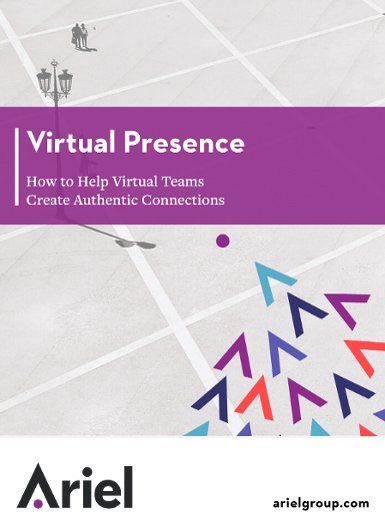3 Tips to Develop Your Early Career Professionals into Future Leaders

Your early career professionals are adept at the technical skills they need to do their job—after all, that’s why you hired them. But after years focused on earning degrees, they may be missing certain soft skills. To continue on a trajectory of success toward eventual leadership, they must also be able to exercise empathy and self-awareness. Emotional intelligence abilities like these have been strongly linked to business success.
Are you creating the right culture and providing the right training to make sure your early career professionals are their most strategic selves — and are prepared to become the leaders who will take your organization into the next generation? Start by helping them focus on the following skills:
1. Understanding their unique personal presence and how to use it strategically
Presence is an oft-overlooked but crucial part of an early career professional’s development and skill set. It’s what helps them own a room during presentations. It’s what gets them and their ideas heard and valued. It’s what tells others that they’re engaged and listening, so the relationship can grow and strengthen.
The first step is understanding what presence is and how it affects an audience. What comes next is simply practice —every day. They’ll need to practice critical skills like making eye contact, altering their vocal projection and tone of voice, and truly listening rather than simply waiting for a chance to speak. Once your team has identified how and when to use their personal presence to influence others and gain respect, they’ll be on their way to being strong leaders.
2. Writing time saving, strategic business messages
A huge percentage of our communications at work are through writing, whether it’s email, PowerPoint presentations, proposals, or even texts. And we are all inundated. If it takes more than a few seconds for a reader to understand the purpose of a message and what’s being asked of them, they’re going to ignore it. That means if your early career professionals are trying to drive action from a director or executive, their messages must be efficient and strategically written.
Your teams writing needs to be concise and reader-centered. Specific subject lines (use “Deadline EOB today: Review Q1 Sales numbers” rather than “Sales numbers”), clear headlines, and white space will make their messages easier to skim and quickly digest. Each message they send, no matter how small, impacts your team’s brand and image as potential leaders. Awareness of this fact is a powerful place to start. To provide your people with more tips, go here.
3. Using stories to find their own unique value and build relationships
Neuroscience has proven that stories quicken the relationship-building process, increase engagement and interest, enhance memorability and build trust. Because trust in leadership is directly linked to employee satisfaction, engagement, and productivity, stories are an exceptional tool in the business world.
If your teams understand the importance of building relationships with those around them—be it co-workers or clients—they’ll be much better off as they build their careers. And if they know how to strategically use a tool to quickly and easily create trust and commonality, much of the hard part of relationship-building will be done. They’ll also be better off when it comes to their story libraries: they’ll develop a wealth of options to pull from when they want to connect with an audience, and they’ll perfect the agility required to make a “rehearsed” story sound and feel natural.
The potential in your early career professionals is there—you already know that. With the right development options and investment, these professionals can grow into the leaders your company needs to find success in the future. And Ariel can help.
